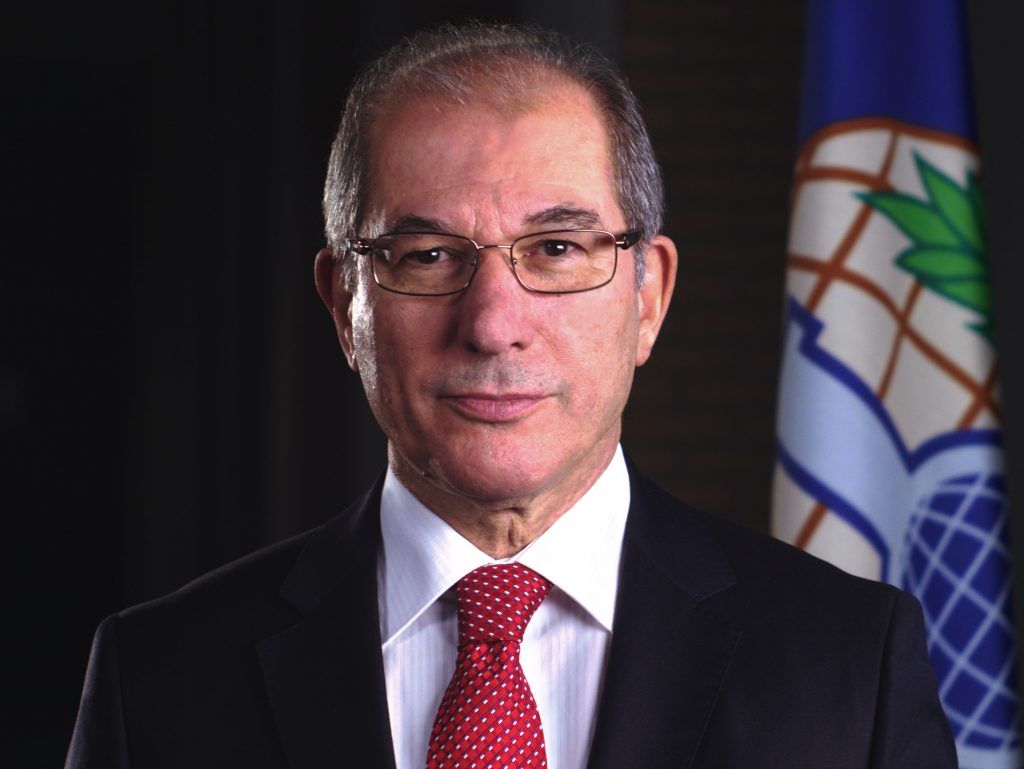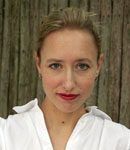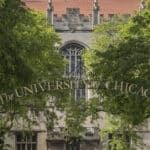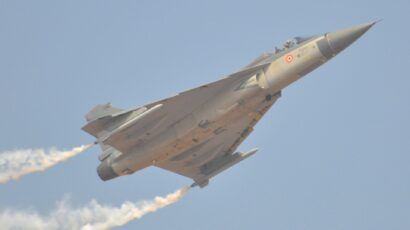Ahmet Uzumcu: Getting rid of chemical weapons in Syria and beyond
By Elisabeth Eaves | October 9, 2014

Ahmet Uzumcu, director-general of the Organization for the Prohibition of Chemical Weapons (OPCW), faced a daunting task. Chemical attacks on Ghouta, Syria, in August 2013 had shocked the world, with reports of hundreds of civilians killed in the area near Damascus. The next month, under the terms of a deal brokered by Russia and the United States, Syria was strong-armed into joined the Chemical Weapons Convention (CWC), the treaty that bans the manufacture, stockpiling, and use of chemical weapons and requires members to declare and eliminate their arsenals. A joint mission of the UN and the OPCW was charged with making sure that Syria complied.
The mission committed to getting rid of Syria’s arsenal in less than 10 months. It didn’t know if it would have enough funding, and Syria was in the midst of a raging civil war. Despite these impediments, the mission managed to destroy 97 percent of Syria’s chemical weapons within one year. Along the way, Uzumcu accepted the 2013 Nobel Peace Prize on behalf of his organization.
The Turkish diplomat represented his country at the United Nations office in Geneva and at the North Atlantic Treaty Organization before joining the OPCW in 2010. At the start of his career, now some 30 years ago, he was consul to Aleppo, the ancient Syrian cultural hub now laid waste by civil war.
In this wide-ranging interview, conducted in September, Uzumcu talked about new reports of chlorine use in Syria, how to stop terrorists from obtaining chemical weapons, bringing Egypt and Israel into the CWC, and watching out for weapons that have yet to be invented.
BULLETIN: In September 2013 you were charged with getting rid of Syria’s chemical weapons—on a tight timeline and in an active war zone. What was the hardest part?
UZUMCU: The main concern was whether we would have enough staff ready to be deployed—mainly inspectors and chemists with relevant expertise. Since this was in the middle of a civil war, clearly we had to ask them whether they would be willing to go. Fortunately 60 of them were ready to be deployed, so we always had a sufficient number. And when they returned, when I asked them again, they were ready to go back.
Funding was the other main concern. We asked the States Parties [to the CWC] whether they would be prepared to provide voluntary contributions to a trust fund for verification, as well as to one for assistance in the destruction of Syrian chemical weapons outside of the country. To my pleasure we obtained sufficient funds. They came from more than 30 States Parties as well as the European Union, which made quite a large financial contribution.
Many countries also contributed in kind. The United States provided a ship that was used as a platform for two hydrolysis systems. The United Kingdom and Germany provided in-kind contributions to help with destruction of chemicals. Denmark and Norway provided maritime transportation. Many countries provided maritime security, including China, the Russian Federation, and the United Kingdom as well as Denmark and Norway. The United States provided packaging material and Russia provided some of the logistics. So it was really a very wide collective undertaking by the international community at large, which also included commercial entities. I think this was unprecedented in the history of arms control and disarmament.
BULLETIN: Within the year ending in September, your organization had overseen destruction of some 97 percent of Syria's declared chemical weapons, an extraordinary accomplishment. But now it seems that there are stocks and infrastructure that were undeclared, including a ricin factory. What is the next recourse?
UZUMCU: We are confident that destruction of the chemicals will be over soon.
The remaining issue is the destruction of 12 production facilities, of which five are underground and seven are aircraft shelters. The equipment in them has already been destroyed; now, according to the Chemical Weapons Convention, the above-ground facilities have to be razed to ground level and the underground facilities have to be filled and plugged. Planning for those activities will be over soon, but the actual work will take six to seven months.
With regard to the declaration discrepancies you mentioned: Syrian authorities had not declared ricin as chemical weapons in their initial declaration. Then they did declare ricin, which apparently had been destroyed prior to Syria joining the Convention in 2013, and they also declared a production facility. This facility is still subject to destruction and verification. In fact one of our teams is in Beirut now holding consultations with the Syrian authorities for that purpose. The main problem we face is the absence of documents or records in Syria, so we’re trying to help them document activities undertaken prior to membership. That's quite a challenging situation.
BULLETIN: Let’s talk about chlorine. Your organization and others have reported that it’s still being used as a weapon in Syria.
UZUMCU: Chlorine is of course a substance used daily in all our countries for many legitimate purposes. But in the convention we have a catchall provision according to which any chemical substance used to harm people, animals, or the environment is considered a chemical weapon.
After allegations of use in April of this year I established a fact-finding mission, and the Syrian government committed itself to cooperating. The mission was sent, but in the course of a site visit on May 27, it was ambushed with an IED and fired upon and had to turn back without reaching its destination. Fortunately the team came back without any casualties, but this shows the security and safety risks involved in this operation.
The fact-finding mission continued to collect information and eventually our inspectors interviewed alleged victims and doctors and nurses who treated them. The mission concluded with a high degree of confidence that a toxic substance was used. Looking at the symptoms and indications, they concluded that the substance was chlorine. This report has now been shared with States Parties, but I don't know what their reaction will be. In the meantime the mission will continue to collect information. We just received some information about the use of chlorine in Iraq, too, so we’re seeking additional information there.
BULLETIN: How concerned are you about non-state actors—including the Islamic State in Syria, or ISIS, but also possibly others—getting and using chemical weapons?
UZUMCU: For years, the production and use of chemical weapons and toxic substances by non-state actors, in particular terrorists, has been a major concern in the minds of our States Parties. In the convention, though, you won’t find any reference to non-state actors. When it was negotiated in the 1980s and early 1990s, this security threat was not really high on the international community’s agenda.
The situation has clearly changed since then, and we see our members raising the issue more and more. There are indications that some [terrorist] groups have attempted to acquire chemical weapons capacity. This is quite worrying and very hard to control.
We think the situation calls for international cooperation to prevent non-state actors having access to substances that could be used in the production of chemical weapons. If we in fact fail to prevent them gaining access, I think States Parties should be more fully prepared for emergency response scenarios.
The Technical Secretariat of the OPCW is holding several training and capacity-building activities in these areas. But of course it will be mainly up to States Parties to take every possible measure to prevent access. Getting access to those chemical substances is unfortunately not that difficult. Nor is it difficult to access the technology.
BULLETIN: During the negotiations you had face-to-face contact with various Syrian officials. What was your sense of their willingness to disarm?
UZUMCU: We all know under what circumstances they decided to give up their chemical weapons arsenal and join the CWC in September 2013. But at the initial stage and throughout this process, the Syrian authorities assured me and others that this was a strategic decision on their part, one taken at the highest level, and that they were determined to be cooperative. Damascus appointed an ambassador to the OPCW who was in regular contact with my colleagues and me. And my evaluation of the level of cooperation over the past 12 months is that it was quite satisfactory, quite positive.
BULLETIN: You were a young consul in Aleppo in the early 1980s. That was just after President Hafez al-Assad, father of current President Bashar al-Assad, had stopped an Islamist uprising with very brutal measures, killing tens of thousands of civilians. Having been there then and looking at this now, what kind of parallels do you see?
UZUMCU: The pictures that I see—out of Syria in general but also in particular out of Aleppo, where I lived for three years and where we were warmly welcomed by the people—are very sad and tragic. My only hope is that there is a political solution as soon as possible so that order can be restored. Syria is a beautiful country and Aleppo was a very beautiful city, especially the old part. I'm told that everything is now destroyed. It's very sad.
BULLETIN: Moving outside of Syria, six countries have not ratified the CWC and those include Egypt and Israel. You’ve said that you've pressed these two to join. What do you think the prospects are?
UZUMCU: If I may, I'm going to start with three others, Myanmar, Angola, and South Sudan. For them, we think it’s a matter of time. We’re able to engage them, we have regular contact, we’ve held some workshops in their capitals, and we want to do more to assist them. So I am rather optimistic about this.
As to Egypt and Israel, the situation is more complex. The Egyptian authorities have maintained their position in favor of a linkage between accession to the CWC and dealing with other weapons of mass destruction, and they are promoting a WMD-free zone in the Middle East. As to Israel, it has also maintained its position that joining the CWC should be linked to general security considerations in the region.
Our point of view is that, first, CWC membership should not be linked to any other process or issue. Second, now that Syria has joined, we think the situation has changed considerably, and that therefore these two countries should reconsider their positions. This is a message that we’ve been conveying for the past year.
The sixth non-member, North Korea, is the only country that has not responded to any demarches over the past 17 years.
BULLETIN: Moving over to Libya, it seems that both former leader Muammar Qaddafi and the post-Qaddafi government have been cooperative in fulfilling the country's obligations. But its chemical weapons have not yet all been destroyed. How dangerous are the chemical weapons that are still there, and are you afraid they could be used by rogue or rebel groups? When are they likely to be destroyed?
UZUMCU: In Libya all Category 1 chemical weapons have been destroyed with the help of our Technical Secretariat and some States Parties, primarily the United States. And the remaining Category 2 chemical weapons, which are mainly precursors, are stored at a site hundreds of kilometers south of Tripoli. These are secured by the Libyans themselves. We were assured that any access to the site is prevented but are still watching the situation quite closely given the circumstances, with instability prevailing in every part of the country. The intention was to help the Libyan government destroy the weapons at the site by building a facility to do so there, but if that’s not feasible we will look for other options.
BULLETIN: You've talked about how important it is for your organization to reach out to scientists, and you suggested a collective early warning system for scientific discoveries that could be misused. Can you tell us more about this idea?
UZUMCU: We have a Scientific Advisory Board composed of 25 eminent scientists from different member countries. They provide us with up-to-date information about scientific and technological developments which may be relevant to implementing the convention.
There are also developments in the scientific world which may pose risks. So we want to be vigilant and follow those discoveries very closely so that we are able to evaluate and judge to what extent we should warn member states to take the necessary measures. So that's a regular process. We also have some temporary working groups—for instance one was on the convergence between biology and chemistry.
BULLETIN: Could you give an example of the sort of scientific development you're concerned about?
UZUMCU: Yes. For instance, nanotechnology and other developments in synthesizing chemical production would apparently allow the production of large quantities of chemical substances in a very limited space. So if one had the raw materials, one would be able to produce quite significant quantities of toxic substances in a laboratory-sized location.
This kind of activity would clearly be harder to detect and control, which leads us to try to think of additional enforcement measures. If chemical weapons making becomes less detectible, then perhaps the relevant authorities in our member countries should focus more on the supply chains of substances that could be used as raw material. In general, any technological or scientific development should lead us to think more meticulously about detection and verification.
BULLETIN: How are you using social media to monitor, verify, and investigate?
UZUMCU: Social media is potentially a very important source of information, and there are several experts in arms control, disarmament, and nonproliferation who argue that social media tools should be used increasingly in verification. But at the OPCW the use of open sources is still a controversial issue. According to several States Parties, the Technical Secretariat should not be allowed to use open sources. Nevertheless, I think that if we were to receive a really a serious allegation of noncompliance via social media, the membership would consider it quite diligently and seriously.
BULLETIN: What do you think is the next major challenge for your organization?
UZUMCU:On disarmament I think we’ve made good progress. Eighty-five percent of declared chemical weapons worldwide have been destroyed. Ninety percent of the United States stockpile has been destroyed, and in the Russian Federation the figure is more than 80 percent. We expect that Russia will complete most of its destruction by the end of next year with the exception of one facility. In the United States we expect that the destruction of the remaining 10 percent may take four to five more years.
For the future, the focus will be on the prevention of reemergence. That means focusing on nonproliferation activities and how to make routine verification more effective. That, and terrorists’ possible use of chemical weapons, will be our main priorities.
Our verification mechanisms alone, though, will not be sufficient to deal with the current security risks. Therefore we want to step up some awareness-raising activities using education and outreach instruments. We have been developing some e-learning modules. We want to reach out to academia, scientific communities, chemical industry associations, and so on, so that they are fully aware of the security risks associated with handling dual-use chemical materials. We need to be able to collectively monitor access to them to prevent misuse.
BULLETIN: Going beyond chemical weapons, the United States is increasing its military presence in Iraq and Syria to fight ISIS. What do you think of this US return to the region?
UZUMCU: Oh, this goes well beyond my mandate. I may have some opinions on the subject, but I'm not in a position to comment.
But given the big security challenge that we are faced with and which should be of serious concern to the whole international community, I would suggest that the international community should take the necessary actions in order to contain these risks.
BULLETIN: Very diplomatic.
UZUMCU: Yes, I’m a diplomat!
BULLETIN: Of course. Could you tell us about the moment you found out that your organization was getting the Nobel Peace Prize?
UZUMCU: We learned about it only the same morning on October 10, 2013. We didn't even know until the night before, when we saw some news on the Internet, that we were being considered as one of the nominees. This came as a very pleasant surprise, I must say. That doesn't mean I think we didn't deserve it, but I wasn't expecting it for the year 2013 because the year before the European Union had won. I thought that they wouldn’t give it to two international institutions in a row. And I thought that chemical disarmament would probably have to progress a little more in order to be recognized.
It was a really big morale boost for our experts deployed in Syria. And it recognized everything done by our colleagues past and present over 17 years. So that was thrilling.
BULLETIN: Is there anything you would like to add?
UZUMCU: I hope that this recognition will encourage others who are working in disarmament or those who are really contributing to peace and security worldwide.
Together, we make the world safer.
The Bulletin elevates expert voices above the noise. But as an independent nonprofit organization, our operations depend on the support of readers like you. Help us continue to deliver quality journalism that holds leaders accountable. Your support of our work at any level is important. In return, we promise our coverage will be understandable, influential, vigilant, solution-oriented, and fair-minded. Together we can make a difference.
Topics: Analysis, Biosecurity, Special Topics, Technology and Security















